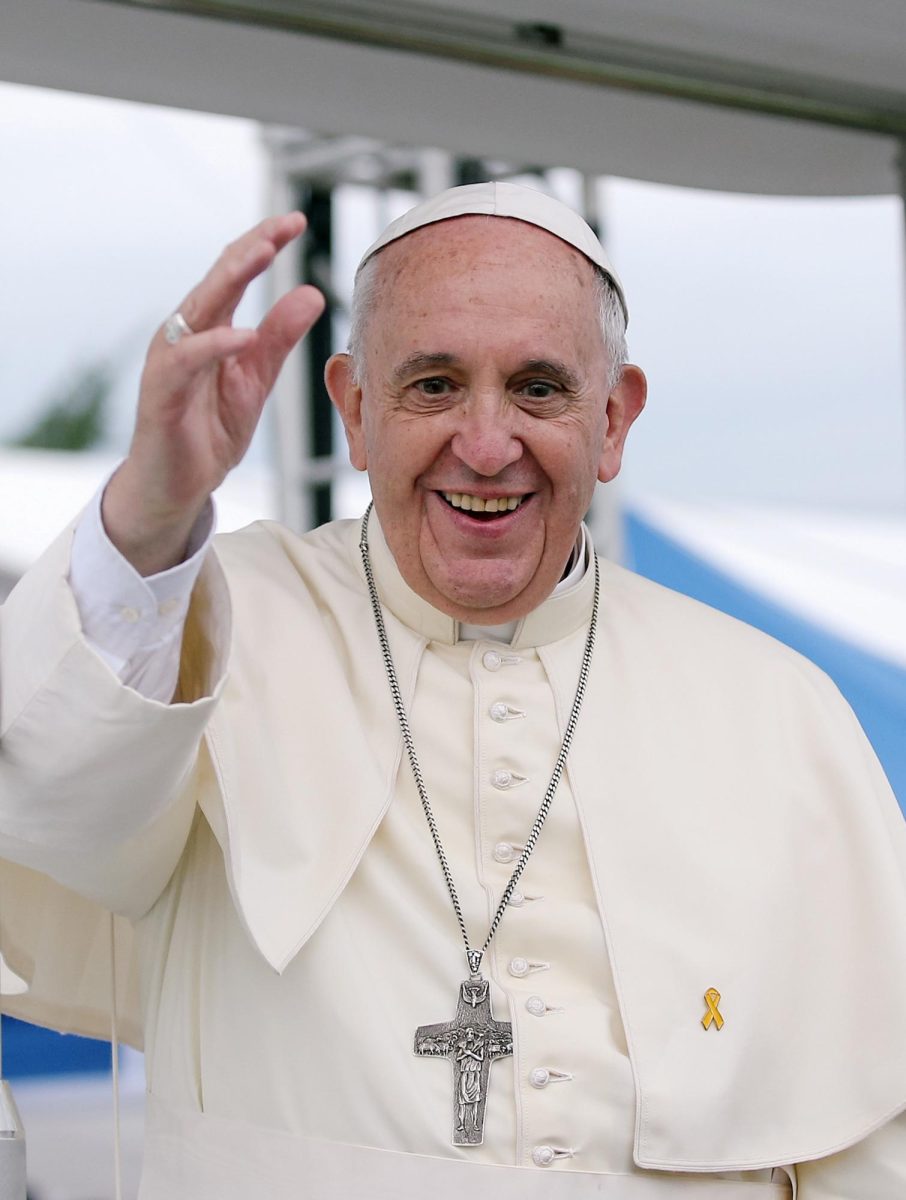On April 21, the head of the Catholic Church, Pope Francis, born Jorge Bergoglio, passed away at 88 years old, ending his papacy after 12 years in the leadership role. Pope Francis was the first Jesuit Pope, the first Pope from the Americas and the first Pope from the Southern Hemisphere, hailing from Buenos Aires, Argentina.
Pope Francis’s time in the papacy was marked by its progressivism after decades of traditional conservatism in the Vatican. This was seen through his outreach to migrants, the poor and alienated gay and transgender Catholics, with his term marking massive and unprecedented progressive leaps in the Church’s handling of said issues.
Pope Francis led the Catholic Church during a period of turmoil. He navigated the Church through a sexual abuse crisis, and met with victims of sexual assault at the hands of members of the clergy.
The circumstances that led to Pope Francis’s assumption of the role were unprecedented in modern times. His predecessor, Pope Benedict XVI, resigned from the role in 2013, the first resignation of a pope since 1415.
Pope Francis came in second during Pope Benedict XVI’s 2005 election by the conclave. When the role reopened, Pope Francis was not seen as a leading contender, but a growing push from cardinals resulted in his election.
Pope Francis passed away from a stroke, just weeks following his release from a five-week stay in the hospital for double pneumonia. Despite his wavering health for several years, Pope Francis still maintained a rigorous schedule, with his final trip being a 12-day trip to Asia last September.
His final public appearance was an address on Easter Sunday, which called for a ceasefire in Gaza and peace in other humanitarian crises worldwide. On his final day, he also met with U.S. Vice President JD Vance, a Catholic convert who recently clashed with Pope Francis on the issue of migration.
The conclave will meet starting May 7 to begin the process of selecting a new pope, and will vote on a new pope twice a day until they reach a two-thirds majority decision.
Out of the 135 cardinals eligible to vote, 108 of them were appointed to the position by Pope Francis, and as such, many expect the upcoming Pope to share similar views to him.
Pope Francis’s service in the papacy will not be forgotten, and he will be remembered for the work done to open the doors to the Church to many.

